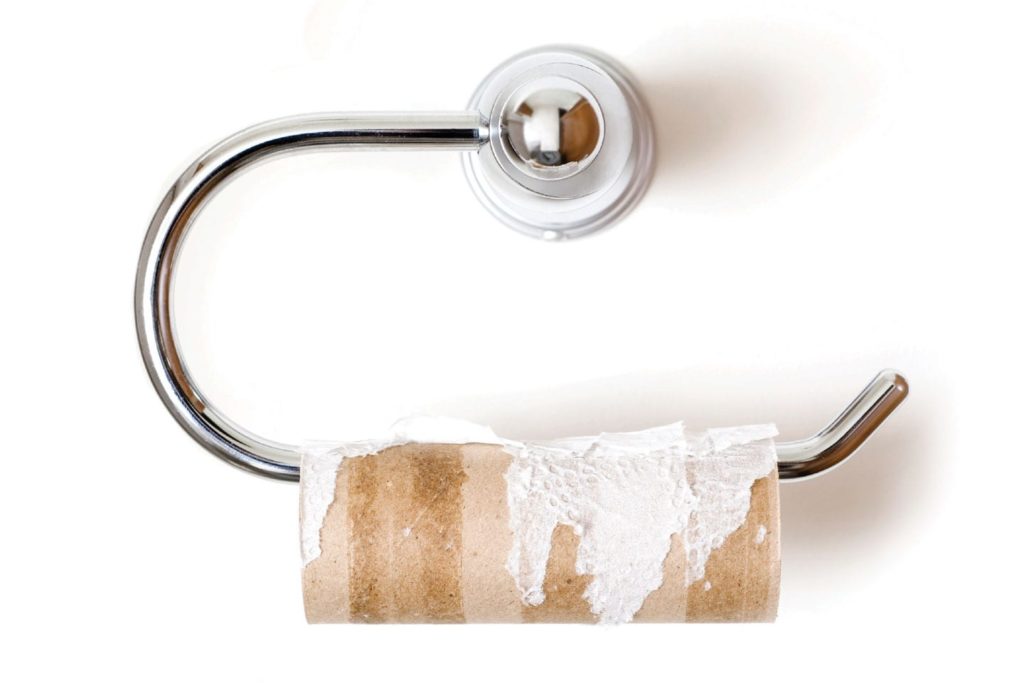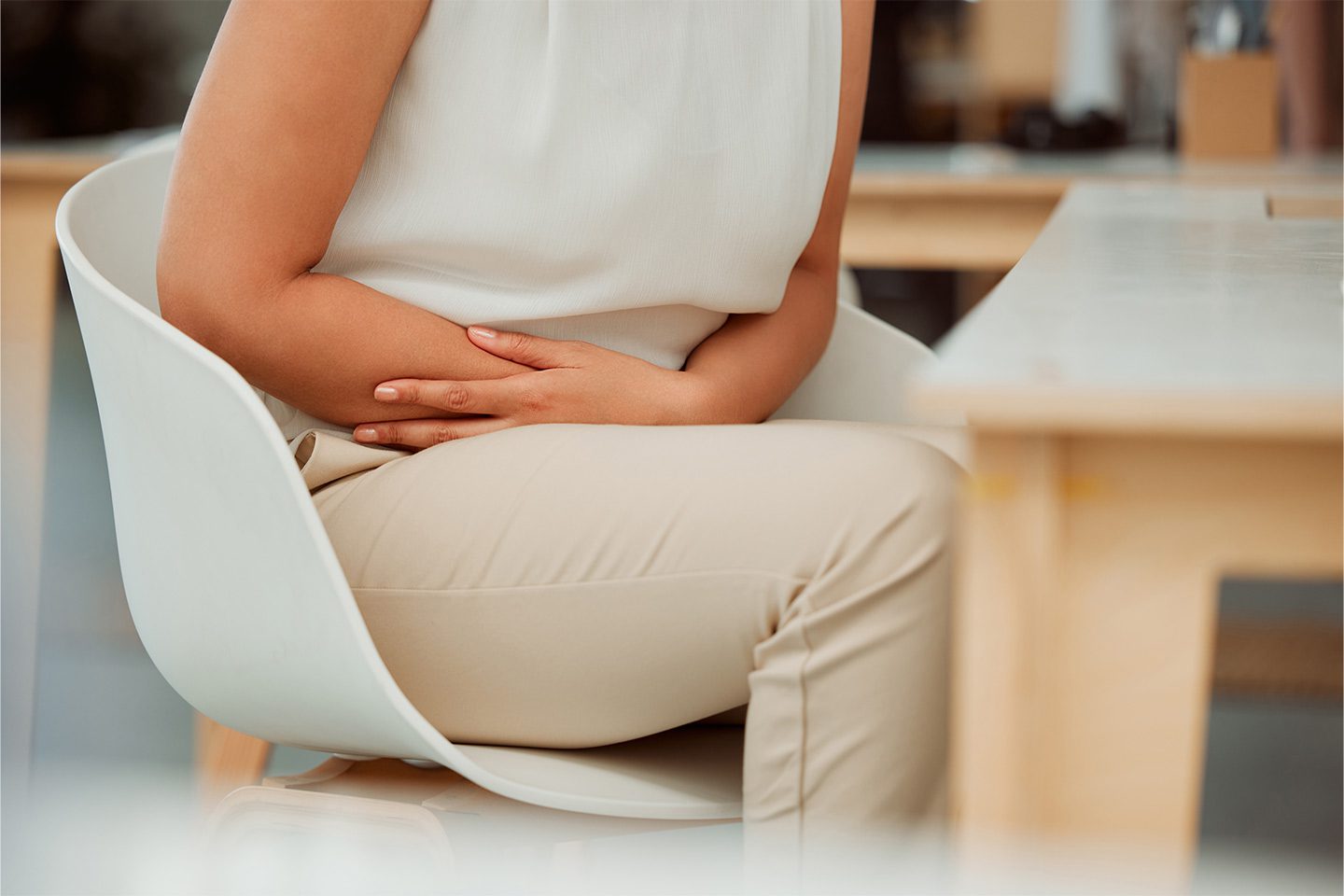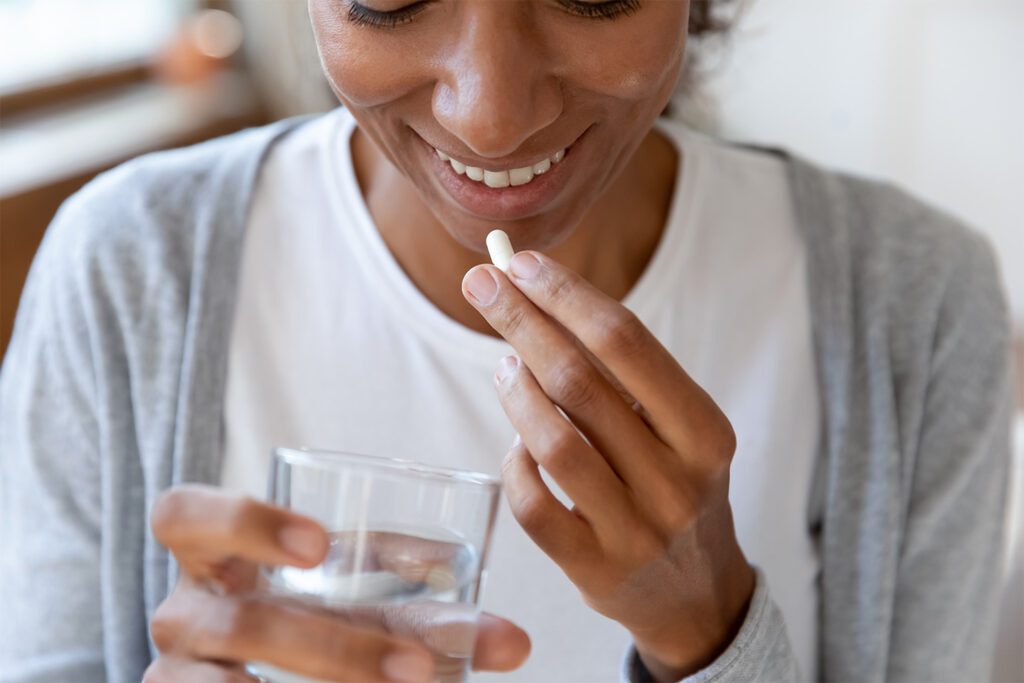Get the Facts on Irritable Bowel Syndrome
For those with Irritable Bowel Syndrome, everyday life is complicated by stomach pain and irregular stools. Here’s why – and how to find relief.
None of us like to talk about the time we spend in the bathroom. But knowing if your bowel habits are abnormal is important for both overall health and quality of life. For more than 1 in 10 adults, bouts of abdominal pain, gas, constipation, and diarrhea interfere with daily life. April is Irritable Bowel Syndrome (IBS) Awareness Month, and it’s time to lift the veil on a long-term condition many find hard to admit.
What is IBS?
One of the most common conditions seen by doctors, IBS is a gastrointestinal tract disorder involving the colon and small intestine. It is considered a “functional disorder” because symptoms occur absent of any visible abnormality – the colon and bowel tissue appear normal upon examination by a physician. And yet, the nerves and muscles in the gut have become over-sensitive.
While symptoms often change over time, the key to an IBS diagnosis is reoccurring pain or discomfort in the abdomen coupled with a change in bowel habits. You may experience bloating and excessive gas as well as loose stools (diarrhea), difficulty passing stools (constipation), or an alternating cycle of the two.

How is it diagnosed?
If several symptoms persist over time, and are often relieved by a bowel movement, you could be suffering from IBS. IBS issues may fluctuate over time, or resolve only to return later in a different variation. This can make for changes in your treatment plan change over time.
“IBS is a chronic condition with no cure, so it’s critical to establish a therapeutic physician-patient relationship based on trust,” says Dr. Vijay Patel, a gastroenterologist with Galen Digestive Health Associates.
Often, a physician will begin by ruling out other conditions or diseases, says Dr. George Samuel, a gastroenterologist with East Tennessee Gastroenterology and Tennova Healthcare – Cleveland. “I start by asking, ‘Could this patient have a more serious condition like cancer or bowel disease?’ and looking for red flags like nausea, vomiting, bleeding, or weight loss,” he says. “Once I’ve ruled those out, I can focus on symptomatic treatment.”
What causes IBS?
It’s not known exactly what causes irritable bowel syndrome, but a variety of factors play a role. The gastrointestinal tract is lined with muscles that move food toward the rectum in a series of contractions. If the contractions last too long or are too severe, your IBS will flare up with gas, bloating, and diarrhea. If the contractions are too weak, your food will pass too slowly, leading to constipation.
The key to managing the syndrome is discovering what exacerbates it. While IBS is not caused by lifestyle choices, flare-ups can worsen with specific triggers. Read on to learn more.
How does my diet affect IBS?
“Oversensitivity to certain foods is often thought to be one culprit of IBS,” says Dr. David Castrilli, an internal medicine physician with CHI Memorial Internal Medicine Associates. “Initial treatment often focuses on identifying problem foods through trial and error and eliminating them from the diet.”
Alcohol, fatty foods, chocolate, broccoli, fruit, carbonated drinks, and caffeine can irritate an already-sensitive gastrointestinal system. Eating large portions can also stimulate the bowels and lead to nausea and cramping.
“As a general rule, IBS patients should avoid gas-producing foods, and in certain cases, lactose and gluten,” says Dr. Patel. “IBS can also be triggered by alcohol, caffeine, insoluble fiber intake, and certain carbohydrates.”
“Here in the U.S., we are subject to a diet high in sugar, carbs, and processed foods, and this has significant ramifications for both our digestive health and overall health status,” says Dr. Samuel. “Personally, I feel correcting your diet is a non-negligible component of IBS treatment, and it should be presented as a primary way to relieve symptoms. By working with IBS patients to change how they eat and drink, I can see improvement in 60 to 70% of cases.”


How do stress and anxiety affect my IBS?
We all know the pressure of a new job, a big test, or a strained relationship can lead to belly issues. For those with IBS, it intensifies existing symptoms even more.
“IBS patients suffer from an increased gastrointestinal response to stress, so in many cases addressing stress is the mainstay of treatment,” says Dr. Patel.
Some physicians will prescribe a low dose antidepressant – both for mood and to help lower the pain signals sent from the gut to the brain. Tricyclic antidepressants like Norpramin can be effective in relieving abdominal pain and reducing diarrhea. Selective serotonin reuptake inhibitors (SSRIs) have been shown to help with IBS-related anxiety and constipation.
“As we assess a patient’s situation, determining which came first – stress or IBS – can feel like chicken or the egg,” says Dr. Samuel. “Often, as I’m asking questions to unravel what’s happening in a patient’s life, they will begin to cry and I will begin to see the bigger picture: that stress is a major component and should become a primary focus.”
Can a low FODMAP diet help?
It can, depending on the type and severity of your symptoms. Developed by an Australian research team, the low FODMAP diet is based on the way the body digests carbohydrates.
“FODMAPs are short chain carbohydrates that are poorly absorbed and rapidly fermented in the intestines,” says Dr. Patel. “Consumed in excess, they can result in bloating and pain.”
These tiny carbs can be found in certain fruits, vegetables, grains, and foods made with high fructose corn syrup or high lactose. They should be eaten in moderation—not eliminated—with the help of a trained dietician. After six to eight weeks, you can review your progress and begin to reintroduce certain foods.
However, a low FODMAP diet can be tricky to manage with accuracy. “While I strongly recommend this type of diet to patients before starting a medication, it can be difficult to avoid these foods and sugars here in America, even for people who are very health conscious,” says Dr. Castrilli. “In the typical American diet, sugars are hidden everywhere. It can make it difficult to identify the causative food.”
If you want symptom relief, but aren’t ready to jump into a FODMAP diet, you can start by avoiding gluten, lactose, alcohol, caffeine, certain sugars, and gas-producing foods like beans, onions, celery, carrots, raisins, bananas, apricots, prunes, and Brussels sprouts. You can also look to increase your intake of soluble fiber.


Can probiotics help?
If you suffer from gastrointestinal issues, you may have heard that probiotics, which are live bacteria and yeasts found in yogurts and other fermented foods with active live cultures, can bring relief. But do they work?
According to Drs. Patel and Castrilli, it’s possible probiotics could help with digestion, particular for those with diarrhea. However, little scientific evidence exists to establish it as an effective treatment for IBS. Bottom line? If you feel they help you, they can’t hurt. But doctors usually focus on other treatments.
“This is a popular question right now since so many products are being advertised for intestinal health,” says Dr. Castrilli. “Probiotics have been studied to some extent, but no clear evidence has established them as an effective treatment for IBS. I don’t usually encourage patients to take them. But I see no harm if a patient would like include them in their diet.”
Can medication help?
If you suffer a flare up, your doctor may recommend a supplement or prescribe a medication to treat your primary symptom. For example, if you have IBS with constipation (IBS-C), your doctor may recommend taking an over-the-counter soluble fiber supplement like psyllium (Metamucil) or methylcellulose (Citrucel) with fluids. If this doesn’t work, he or she may recommend polyethylene glycol (GlycoLax, MiraLax) or prescription lubiprostone (Amitiza) or linaclotide (Linzess).
Likewise, if you have IBS with diarrhea (IBS-D), your doctor may recommend taking an anti-diarrheal like loperamide (Imodium) before leaving home or eating a meal. If you need a stronger option, he or she may recommend prescription cholestyramine (Questran, Prevalite) or other medications that bind to bile acids. However, it’s essential to understand that the majority of IBS patients will see improvement after making diet and lifestyle changes and managing stress.
“You don’t want to put a band aid on a chronic issue,” says Dr. Samuel. “It’s better to cut straight to the deeper issue and make overall health your goal, rather than treating symptoms once they appear. You can always change something in your life to become healthier and improve your overall quality of life. Health is not what you look like, your lab work, or your weight. It’s what you do.”
While symptoms often change over time, the key to an IBS diagnosis is reoccurring pain or discomfort in the abdomen coupled with a change in bowel habits. You may experience bloating and excessive gas as well as loose stools (diarrhea), difficulty passing stools (constipation), or an alternating cycle of the two.
While symptoms often change over time, the key to an IBS diagnosis is reoccurring pain or discomfort in the abdomen coupled with a change in bowel habits. You may experience bloating and excessive gas as well as loose stools (diarrhea), difficulty passing stools (constipation), or an alternating cycle of the two.
The key to managing the syndrome is discovering what exacerbates it. While IBS is not caused by lifestyle choices, flare-ups can worsen with specific triggers. Read on to learn more.


Vijay P. Patel, MD
Gastroenterologist, Galen Digestive Health


George Samuel, DO
Gastroenterologist, East Tennessee Gastroenterology, PCC


David Castrilli, MD
Internal Medicine Physician, CHI Memorial Internal Medicine Associates

